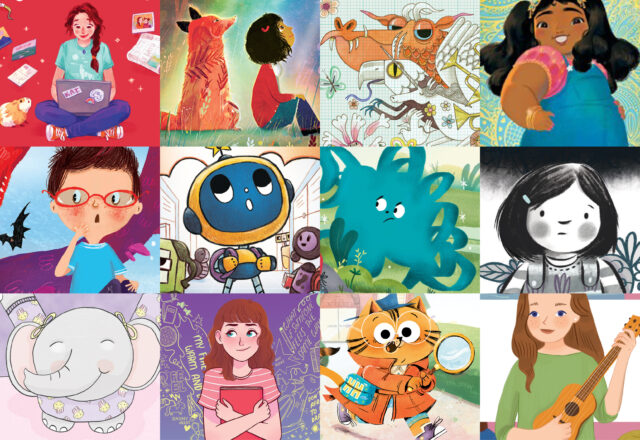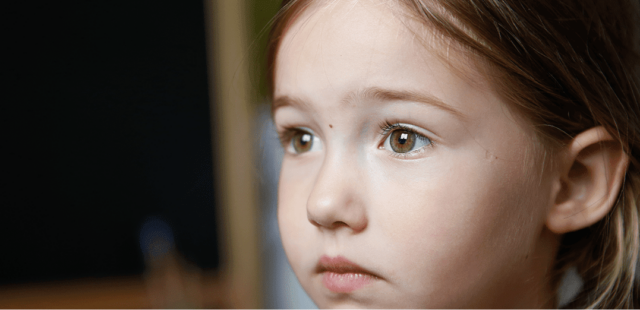There are several autism terms in common usage. Some prefer to say “child with autism” because they feel it emphasizes the child’s identity outside their diagnosis. But many autism activists prefer “autistic child” because they feel that autism should be respected as part of a person’s identity, rather than a disability.
People use several different terms when talking about autism. Some prefer to say “a child with autism” and some prefer “an autistic child.”
The two terms reflect different ways of thinking about autism, and some people have strong feelings about them.
Person-first
Those who use “child with autism” prefer it because they feel it emphasizes the child’s identity outside of their diagnosis. They’re making a statement that the child is not defined by autism.
This is commonly called “person-first” language and is often recommended as a respectful way to talk about people with disabilities and other health issues.
Identity-first
Other people, including many autism activists, prefer to use the term “autistic” because they feel that autism should not be seen as a disability or disorder. Instead, it should be seen as a difference, a form of what’s called “neurodiversity.” They feel that autism should be respected as part of one’s identity.
This is known as “identity-first” language. Autistic self-advocates say that being autistic is part of who they are — just like other labels like Catholic, Black, female, and so on.
They argue that saying “with autism” implies that autism is a negative thing that has happened to a person, rather than an integral part of their identity.
At the Child Mind Institute we use both “autistic” and “with autism” to acknowledge the diversity of people’s opinions.
Asperger’s
Some people also refer to their child having “Asperger’s disorder,” or just “Asperger’s.”
This term is used to describe autistic children who have some symptoms of autism but do not have language or intellectual impairment. These children are also sometimes described as having “high functioning autism.” Their symptoms are mild and don’t, for the most part, prevent them from functioning effectively and excelling in many fields.
Until 2013 Asperger’s disorder was a diagnosis separate from autism in the DSM-IV, the official guide to mental health disorders. But in 2013, when the DSM was updated (to the DSM-5), Asperger’s disorder was folded into the autism spectrum disorder diagnosis.
But many people do continue to use it.
Frequently Asked Questions
The term Asperger’s used to describe autistic children who have some symptoms of autism but who did not have language or intellectual impairment. Asperger’s disorder used to be a separate diagnosis, but in 2013 it was folded into the autism spectrum disorder diagnosis in the DSM-5.

Was this article helpful?
Related Reading
-
 Do Autism Behaviors Have Medical Causes?
Some persistent problem behaviors turn out to be treatable illnesses
Do Autism Behaviors Have Medical Causes?
Some persistent problem behaviors turn out to be treatable illnesses
-
 Quick Guide to Autism Spectrum Disorder
Autism spectrum disorder (ASD) is a neurodevelopmental disorder. It affects children in two big ways. First, it…
Quick Guide to Autism Spectrum Disorder
Autism spectrum disorder (ASD) is a neurodevelopmental disorder. It affects children in two big ways. First, it…
-
 Sharing an Autism Diagnosis With Family and Friends
Tips for explaining autism to family and close friends, to help them become effective allies
Sharing an Autism Diagnosis With Family and Friends
Tips for explaining autism to family and close friends, to help them become effective allies
-
 77 Children’s Books About Mental Health
Best books for helping kids understand emotional and learning challenges
77 Children’s Books About Mental Health
Best books for helping kids understand emotional and learning challenges
-
 Complete Guide to Autism
Autism spectrum disorder is called a spectrum because autistic kids may have a wide range…
Complete Guide to Autism
Autism spectrum disorder is called a spectrum because autistic kids may have a wide range…
-
 What Should an Evaluation for Autism Look Like?
From finding the right clinician to diagnostic tools and parent interviews, there are many steps
What Should an Evaluation for Autism Look Like?
From finding the right clinician to diagnostic tools and parent interviews, there are many steps
-
 Why Many Autistic Girls Are Overlooked
They often go undiagnosed because they don’t fit autism stereotypes and they mask symptoms better…
Why Many Autistic Girls Are Overlooked
They often go undiagnosed because they don’t fit autism stereotypes and they mask symptoms better…
-
 How do you tell the difference between Asperger’s and selective mutism?
A child with SM is unable to talk only outside the home. A child with…
How do you tell the difference between Asperger’s and selective mutism?
A child with SM is unable to talk only outside the home. A child with…
-
 What Is Profound Autism?
A proposed category for kids on the severely impaired end of the autism spectrum
What Is Profound Autism?
A proposed category for kids on the severely impaired end of the autism spectrum
-
 Vaccines and Autism: A Clinical Perspective
Extensive evidence reveals no credible link between vaccines and autism. Clinical experts explain our current…
Vaccines and Autism: A Clinical Perspective
Extensive evidence reveals no credible link between vaccines and autism. Clinical experts explain our current…
-
 Autism Test for Kids and Teens
Our free Symptom Checker can help you determine if your child might have autism
Autism Test for Kids and Teens
Our free Symptom Checker can help you determine if your child might have autism
